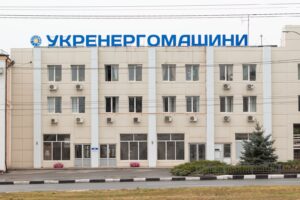
In January-November 2025, the Croatian residential real estate market cemented its status as one of the most expensive and dynamically growing in the EU. Official statistics and private research show double-digit price growth amid a slowdown in the number of transactions and an increased role of the state in addressing the issue of housing affordability.
According to the State Statistics Office (DZS), the average price per square meter of new housing in Croatia in the first half of 2025 was €2,754. This is approximately 15.9% more than in the first half of 2024 and 5.3% higher than in the second half of 2024.
By region. – Zagreb: around €2,958 per square meter (+4.5% year-on-year), rest of Croatia: around €2,511 per square meter, with growth in these cities and towns reaching 22% over the year, reflecting the rapid rise in housing prices in coastal and tourist regions.
The House Price Index shows that in the second quarter of 2025, residential property prices rose by 4.4% compared to the previous quarter and by 13.2% compared to the same period in 2024. According to Eurostat, this is one of the highest figures in the EU in terms of quarterly and annual growth.
According to market analysts’ estimates, the average price of housing (including secondary housing) in the fall of 2025 approached €2,800–2,900 per square meter across the country, which is approximately 70–80% higher than in 2020. At the same time, the average price of apartments is estimated at over €3,800–4,100 per square meter, while houses are slightly cheaper.
Market data shows that the gap between the coast and inland regions is widening:
In Split, the average asking price in October 2025 reached around €5,315 per square meter, almost 15% more than a year earlier.
In Dubrovnik, an apartment costs on average more than €4,100 per square meter, and in prestigious locations, the range is €5,000–7,000 and above.
In Istria and popular locations in Central and Southern Dalmatia, typical prices range from €3,500 to €7,000 per square meter, depending on the class of the property and its proximity to the sea.
Inland regions (e.g., Slavonia) remain significantly cheaper, often in the range of €1,000–2,000 per square meter.
In Zagreb, the average price for apartments is estimated at around €3,400–3,500 per square meter, but there is a significant gap between districts within the city. Analysis of private listings shows that the central and “tram” areas of the capital are significantly more expensive than the suburbs.
A separate trend in 2025 is stagnation and even a slight decline in house prices in some segments. According to one of the largest ad portals, the average price of houses in Zagreb in the middle of the year was around €1,200 per square meter, with price growth slowing more sharply than for apartments.
Despite high prices, the market has not yet shown a full correction. Some analytical reviews note a decline in the number of transactions in the first half of 2025, but this has had virtually no impact on price levels, especially in coastal regions, where supply remains limited.
At the same time, rising interest rates and tighter mortgage lending conditions, which began in 2023–2024, are limiting the options for some households, especially young families. In 2025, the Croatian National Bank tightened macroprudential requirements for banks and mortgage loans in an effort to curb overheating in the housing market and risks to financial stability.
According to Arvio’s report for the first quarter of 2025, foreigners accounted for about 7.19% of all real estate transactions in Croatia. The most active buyers were:
citizens of Slovenia – approximately 30.2% of foreign transactions,
Germany – approximately 21.1%,
Austria – approximately 10.4%.
The total number of transactions involving foreigners has been declining for the third consecutive year: an estimated 13,300 in 2022, 12,300 in 2023, and 11,600 in 2024.
Foreigners traditionally concentrate on the Adriatic coast (Istria, Kvarner, Dalmatia) and the islands, where new apartments and houses ready for immediate occupancy or rental are in demand. It is external demand, combined with limited supply, that largely supports the high and rising price level.
The sharp rise in prices and the decline in housing affordability prompted the government to adopt the first comprehensive National Housing Policy Plan until 2030 in 2025.
Key facts on which the document is based:
there are about 2.39 million housing units in the country, with about 40% not used for permanent residence,
over the past five years, the price of new apartments has increased by approximately 54%,
young families face difficulties in accessing mortgages and a shortage of affordable housing.
In fact, the state is trying to simultaneously cool down overheated market segments and expand the supply of affordable apartments, especially in the medium and long-term rental market.
Based on statistics for the first three quarters and market participants’ expectations, the baseline scenario for the end of 2025 and 2026 is as follows:
Prices will continue to rise, but at a slower pace than the double-digit rates seen in 2023-2024. Already in the second half of 2025, some analysts are noting a slowdown in growth, especially in the housing segment and in regions far from the sea.
The gap between the coast and inland regions will remain: tourist and premium locations will become more expensive faster, while “continental” Croatia will remain relatively affordable, which may support internal migration and local demand.
According to analysts’ estimates, the share of foreign buyers will remain at around 8% of all transactions by the end of 2025 or will decline slightly due to high prices and affordability issues.
The implementation of the National Housing Plan until 2030 will play an important role, including the launch of affordable rental programs, the activation of vacant housing stock, and the adjustment of subsidized home purchase programs.
For Croatia, where real estate has become a key tool for household savings and an object of interest for foreign capital, the coming years will be a test of its ability to combine the goals of economic growth, tourism development, and ensuring basic housing affordability for its own citizens.

According to an analytical report by Relocation, the average price of secondary housing in Spain reached a historic high of €2,555 per square meter in October 2025, which is 15.7% more in annual terms and 1.5% more than in September. In some markets, the growth was even higher: in the province of Malaga, the average price of secondary housing rose to €3,842 per square meter in August, +13.8% year-on-year. The INE’s nationwide housing price index for the second quarter recorded +12.7% year-on-year, with secondary housing rising by 12.8%.
Prices in Spain are being driven by a shortage of supply, high demand in coastal provinces and on the islands, and sustained activity from foreign buyers. According to Relocation, up to 80% of potential buyers face the problem of affordability and a lack of suitable properties, which further pushes prices up.
The leaders in terms of regional dynamics are the Costa del Sol, the Balearic and Canary Islands, and the provinces of Alicante and Valencia. In the large agglomerations of Madrid and Barcelona, demand is sustained by the rental market and limited construction.
Spanish business publications forecast further growth of 4-6% for 2025-2026, with a shortage of new supply on the market.

In Q2 2025, average housing prices in Hungary rose by 17.9% year-on-year and 5.1% quarter-on-quarter according to the aggregate index of the National Bank of Hungary. In Budapest, the increase was 23.1% year-on-year and 6.3% quarter-on-quarter, in cities outside the capital – 18.7% year-on-year and 5.9% quarter-on-quarter, in rural areas – 10.7% year-on-year and 2.8% quarter-on-quarter, according to the latest issue of the MNB House Price Index for Q2.
According to Eurostat, in Q2 2025, the aggregate housing price index in the EU rose by 5.4% y/y and 1.6% q/q, indicating that Hungary is outperforming the European average. At the same time, the number of housing transactions in Hungary fell by 5.7%, indicating rising prices amid declining activity.
In Q1 2025, the MNB recorded double-digit price growth both nationally and in the capital, against the backdrop of a revival in mortgage lending and a number of subsidized programs.
The acceleration of prices in the second quarter in the capital and major cities, accompanied by a decline in transactions, points to a market where demand is mainly sustained by improvements in real household incomes and supportive measures, as well as a shift in supply from short-term rentals to long-term formats amid increasing regulation, especially in Budapest.
The baseline scenario for Q4 2025 is a slowdown in growth to 3-4% q-o-q nationwide and 4-5% q-o-q in Budapest amid seasonality and partial profit-taking. A more moderate trajectory is expected for 2026: 6–9% y-o-y nationwide and 8–11% y-o-y in the capital, provided that support programs and stable rates are maintained. Risks of a slowdown include a possible tightening of mortgage conditions and a slowdown in real incomes; risks of acceleration include the expansion of subsidized mortgages and additional restrictions on short-term rentals in tourist areas. The assessment is based on the dynamics of the MNB index, Eurostat statistics on transactions, and reports from the regulator on income support policy.

The rental market in Prague in 2025 remains one of the most dynamic in Central Europe. Demand exceeds supply, especially in the central districts of the city — Prague 1, Prague 2, and Prague 3, which traditionally attract both locals and foreigners, according to analysts at Relocation.com.ua, citing data from Global Property Guide and the Czech Statistical Office.
The average asking rent for a one-bedroom apartment in Prague in 2025 is around CZK 26,500 (≈ €1,050) per month. This is 8-10% higher than in 2024, when the average was around CZK 24,000.
Two-bedroom apartments in central areas (Prague 1, 2, 5) cost between €1,300 and €1,900 per month, while in residential areas such as Prague 9 or Prague 10, rents for similar accommodation range from €850 to €1,200.
According to the Sreality.cz portal, during the first half of 2025, the average rent in the capital rose by 5.7%, and compared to 2023, by more than 15%. The main drivers are the rising cost of new construction, high mortgage interest rates (which keep people in the rental market), and a steady influx of foreign workers.
The share of renters in Prague continues to grow and already exceeds 25% of households, which is the highest figure in the Czech Republic. Young professionals under the age of 35 account for more than half of all renters, while among foreigners, the most active groups are Ukrainians, Slovaks, Indians, and EU citizens.
The profitability of renting in Prague remains attractive to investors: according to Global Property Guide estimates, the average gross yield ranges from 4.8% to 5.4%, depending on the area and type of property.
Among the trends for 2025 is increased discussion around the regulation of short-term rentals (Airbnb): the municipality is considering options for limiting the duration of apartment rentals in tourist areas in order to balance the interests of local residents and the tourism business.
Experts predict that the housing shortage and growth in rental demand will keep the market buoyant until at least mid-2026. New construction in the center remains limited, with most growth in supply expected on the outskirts of the city, particularly in Prague 9, 10, and 13.
Source: http://relocation.com.ua/prague-rental-housing-market-analysis-by-relocation/

JSC Ukrenergomashiny, more than 75.22% of whose shares are owned by the state, has planned capital investments of UAH 125 million for the current year, in particular for the organization and costs of relocating part of its production facilities to the Zakarpattia region, according to the company’s interim financial report for the first half of 2025.
“The total volume of planned capital investments for 2025 is UAH 125 million, including the organization of events and expenses for the relocation of part of the production facilities to the Zakarpattia region, which are planned to be covered by funds from the budget reserve fund in accordance with the relevant resolution of the Cabinet of Ministers,” the published report states.
As reported, in April 2024, the company announced without details its decision to establish branches in the western regions of Ukraine: Lviv, Zakarpattia, and Chernivtsi. However, the press service clarified at the time that the company would remain in Kharkiv, and the branches would be created to speed up the production of electric traction equipment and logistics processes in order to quickly deliver equipment under export contracts.
According to the financial report for the first half of this year, in 2025, the largest investments are planned for the development of existing production facilities, in particular, the purchase of new equipment, overhaul, and modernization of existing equipment. In particular, UAH 38.4 million is planned to be allocated to provide production with the necessary organizational and technical equipment and tools, and UAH 7.4 million to develop auxiliary production and a laboratory and experimental base.
“These measures are partially financed from our own funds and from funds attracted from the budget reserve fund,” the company said.
Ukrenergomashini reports that in the second quarter of this year, UAH 1.76 million was spent, including UAH 675,000 on the purchase of new equipment.
At the same time, it is emphasized that in order to preserve the production capacities of a strategic enterprise that is of particular importance for Ukraine’s energy sector, work is underway to relocate part of the equipment to western regions.
JSC Ukrenergomashyny reminds that it is one of the largest enterprises in the world and the only designer and manufacturer in Ukraine of a wide range of equipment for the energy sector, but during the war, it has mastered the production of a wide range of other special products, in particular, for urban transport (customer: Tatra-YUG LLC), an electric motor has been designed and launched into serial production. A number of products have also been mastered for Friendly Wind Technologies LLC.
In addition, the design of an automatic reversing switch and switch for trams and trolleybuses is being completed, a control unit for diesel locomotives has been developed, and the production of traction units has been established.
As reported, the company ended January-June of this year with a net profit of UAH 0.49 million, while for the same period last year it was UAH 20.81 million, with a slight decrease in net income to UAH 468.85 million.
According to the report, sales in the second quarter amounted to UAH 243.55 million, of which UAH 132.255 million were export deliveries (54.3% of sales), with products exported to Kazakhstan, India, Armenia, Bulgaria, and Hungary.
The main customers (more than 5% of total revenue) include Ukrhydroenergo, NAEK Energoatom, Centrenergo, Mykolaiv Locomotive Repair Plant, Kryukiv Railway Car Building Works, DTRZ, Tatra-Yug, as well as Kozloduy NPP (Bulgaria), Paks NPP (Hungary), AAEK (Armenia), and KBI Energy (Kazakhstan).
At the same time, the value of concluded but not yet executed agreements (contracts) as of the end of the second quarter of 2025 exceeds UAH 8 billion, and the total amount of payments remaining to be paid under these contracts is UAH 2.86 billion.
Ukrenergomashyny JSC names foreign companies Andritz (Austria), Voith (Germany), General Electric (USA), and Bharat Heavy Electric Ltd. (India) as its main competitors and assesses competition in the markets as high.
JSC Ukrenergomashiny is the only manufacturer of turbine equipment for hydro, thermal, and nuclear power plants in Ukraine. It also produces electric motors for rail and urban transport.
As of July 1, 2025, the company employed nearly 2,600 people.

The rental market in Budapest (Hungary) in 2025 is experiencing price increases and increased competition, especially in the central areas of the capital, according to analysts and realtors.
According to Global Property Guide, the average asking rent for a one-bedroom apartment in Budapest in 2025 is around HUF 264,000 (≈ USD 713) per month.
Rental rates are rising: in January 2025, asking prices in Budapest rose by 1.8% compared to the previous month, with annual growth of around 9.5%.
For two-bedroom apartments, rental prices in central areas in 2024 ranged from €1,000 to €1,500 per month.
However, in central Budapest (districts 5, 6, 7, 1), the rent for a one-bedroom apartment can be €800–1,500, and in residential areas or outer districts, €600–850.
The share of households living in rented accommodation in Budapest has increased from 12.7% to 17.5% in recent years. The growth is particularly noticeable among young people: a significant proportion of the 20-35 age group rent their accommodation.
The gross rental yield (before expenses) in Hungary is around 5.06% (2025, Q3).
Demand for rentals is growing faster than new housing is being built, especially apartment buildings in central areas, creating a shortage and pushing rents up. In addition, the debate over the regulation of short-term rentals (Airbnb and similar) is intensifying: one district of Budapest has voted to ban short-term rentals starting in 2026, which could affect the overall rental market.
Source: http://relocation.com.ua/budapest-rental-housing-market-analysis-by-relocation/